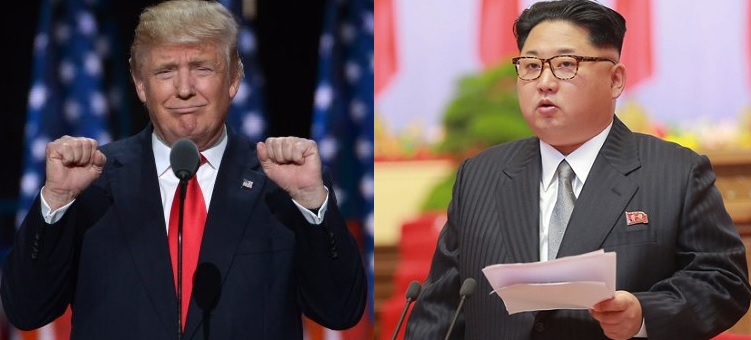

Follow us on:  
|


Despite reports of a rift with China in US media, tensions between Pyongyang and Washington appear to have subsided
The war of words between US President Donald Trump and North Korean leader Kim Jong-un appears to have subsided this week as South Korean President Moon Jae-in announced he was seeking improved relations with Pyongyang.
During a political rally in Arkansas earlier in the week, Trump claimed that Kim was “starting to respect us” even as the North Korean leader continued to inspect weapons facilities in his country.
On Thursday, Moon said that improved relations with the North could eventually lead to the denuclearization that world powers seek.
Moon said that South Korean policies in dealing with the North need to return to the experiences of the past, specifically about 10 years ago when relations with Pyongyang appeared to be on the mend and both countries were involved in joint economic projects.
Unlike his predecessor President Park Geun-hye, who was ousted on corruption charges, Moon came to the presidency with a clear vision to repair ties with the North.
Since his inauguration in May, Moon has been seeking to reform the South’s way of dealing with the North amid the continuing tensions and war of words between Pyongyang and Washington.
He has asked his security and foreign policy appointees to draft a unification approach with the north; this has long been an initiative both Koreas have discussed during more peaceful times.
Between 2000 and 2007, South Korea joined the North along with China, the United States, Russia and Japan in what were known as the six-party talks to use economic engagement to persuade Pyongyang to abandon its nuclear and ballistic missile programs.
Known as the Sunshine Policy in Seoul, the engagement was designed to create jobs for North Korean workers in addition to social exchange between the two Koreas.
The policy was largely shelved in 2008. China has repeatedly called for a return to the six-party talks.
China calls for calm
Despite US media claims that a rift had emerged between Washington and Beijing on how to rein in North Korea, it seems that Chinese calls for calm and dialogue are working.
China has repeatedly warned that no one would win if there was war on the Korean Peninsula, advising against anything that could escalate the situation.
“We urge all parties to refrain from inflammatory or threatening statements or deeds to prevent irreversible damage to the situation on the Korean Peninsula,” the Chinese Foreign Ministry has said.
Earlier last month during a meeting between Chinese President Xi Jinping and his Russian counterpart Vladimir Putin, Moscow and Beijing said that North Korea should freeze its nuclear and missile programs, while the US and South Korea should abstain from holding war games in the region.
Chinese President Xi Jinping, who spoke to Trump repeatedly on the crisis, has urged restraint from both Pyongyang and Washington.
China has also stressed on the grave threat a US anti-missile system in South Korea poses to both Chinese and Russian interests.
The BRICS Post with inputs from Agencies